Life’s Worse Experiences Can Be Gold? by Carol Malone
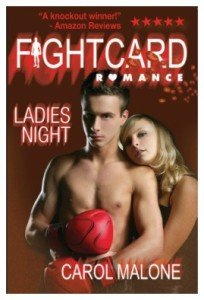 Please welcome author and book coach in training Carol Malone.Today she’s sharing her article about what the benefits are to writing down her life’s worst experiences as a form of journaling. Enjoy!
Please welcome author and book coach in training Carol Malone.Today she’s sharing her article about what the benefits are to writing down her life’s worst experiences as a form of journaling. Enjoy!
***
I adore watching the Olympics mostly because I love to watch the segments the reporters do on the athlete’s journey to win Olympic gold, or to just participate. Most, if not all, have had horrific challenges to overcome in their lives, and they were willing to share those experiences to the benefit of other Olympic hopefuls and the viewers. I especially love those who have overcome personally defeats and tragedies to rise to a individual victory.
Because of the Olympics, it has recently come to my attention that a practice of mine, to write out my feelings whether they were happy or miserable, is beneficial to my health in many ways: spiritually, emotionally, psychologically, and physically.
Have you ever written out your hurt feelings and personal pain?
When you were upset with a family member, faced with an untenable situation, or were filled with joy to overflowing, did you write about the problem in a journal, or jot down your negative or positive feelings on a piece of paper? Sometimes, I only write in my journal when my husband ticks me off. It helps me blow of the steam that would otherwise be directed at him and cause real trouble for both of us. It is easier to vent with the pen or keyboard, than on my loved one.
Who knew that venting, ranting, screaming, haranguing, or sharing your ultimate joy with your journal would benefit your health and well-being? Who knew that writing could be a formula for very cheap psychotherapy?
It has also been suggested in Tori Rodriquez article, “Writing Can Help Injuries Heal Faster,” that “Expressive writing is known to help assuage psychological trauma and improve mood. Now studies suggest that such writing, characterized by descriptions of one’s deepest thoughts and feelings, also benefits physical health.”
When learned I had cancer, I cried about it, wailed about it to the Creator, then I wrote about it. I also wrote about the steps I took to get through the diagnosis, pre-op, and finally surgery and recovery. I’ve shared this on one of my blogs and my doctor shared it with his other cancer patients.
The one thing has remained constant as I’ve faced a blank screen unable to write my novels, is my early morning habit to write whatever comes into my head through a program created by author, Julia Cameron titled, The Artist’s Way. In order for a writer to “conquer blocks and self-destructive tendencies,” Julia Cameron urges using a “spiritual path to higher creativity.” One of the ways to find out what’s bothering a stuck creative person—like a writer—is to write. How very clever of her.
According to Julia, a person who writes their thoughts, their rants, their pains, their joys, their sorrows, and their flow of consciousness on a daily basis will eventually form a writing habit. This practice is performed early in the morning before all other activities for the day are begun. She calls this journaling by hand for three full pages, our “Morning Pages.” She said you could also call it your “Mourning Pages,” depending upon your mood and how much sorrow you need to get rid of to move forward.
When I first started writing my morning pages, they were more “mourning pages” than happy. Because I needed to get rid of the grief, the anguish, the pain of my personal life that was holding me back from writing fiction in my happy flow again.
Since I began my morning pages in January of 2016, I have been consistent—mostly. There were days when I was not able to write due to other circumstances, but the benefit was, I was writing again, even if was only to complain and moan. And no, I’m not completely healed yet, but I’m taking the healing steps one day at a time.
What I was writing about was my life’s worst experiences—but I was beginning the healing process.
The whole idea around writing early in the morning is that writing resets our perspective, changes our attitude, and makes us grateful for the gifts our Creator has given us. It also helps us to calm the Inner Censor, as Julie describes our creative block, and gives us the tools to lessen his voice in our heads. We’ve all heard him especially when he insists, “You think you’re a writer, bah!” my Inner Censor, Mal A. Dee, complains, “Go back to your 9 to 5 job, and forget writing!”
But we don’t want to forget writing. We want to write. We have to write. As Neil Gaiman said, “No one can write a (insert your name here) Carol Malone book better than (insert your name here) Carol Malone.”
I now write every morning to keep me sane and grounded. According to Kellie McGann from The Write Practice, in her article, “3 Reasons to Write About the Worst Experience of Your Life,” “Writing About Your Worst Experience Heals.” That’s the first point of her article. She suggests that blogging will improve your mental health because as a writer, we “process events around [us] them in a healthier way, which reduces stress.” This is what I did when I had cancer.
What about fiction writers. How can they benefit from journaling?
If you’re a fiction writer, this also applies. How often have you found a piece of yourself in the behavior of your characters? “Through writing about their [our characters’] experiences, we are able to process our own,” Kellie said. Overcoming personal tragedies and pain through the pages of our books will heal us as well as serve other people who might be experiencing the same thing.
After all, who wants to read about an easy life story? “Easy is boring, anyone can be boring.” Kid President said in his dynamic video. (Watch the video: “A Pep Talk from Kid President to You.” )
We all want to have a happily-ever-after in our lives and in our stories, but our readers don’t want that until they’ve read about the struggle you and/or your characters have had to face to eke out that HEA. “Your worst experiences are the events that can most powerfully engage your audience and compel them to keep reading,” Kellie said.
Another point made by Kellie in her article is that you gain credibility with your readers which comes from sharing your life’s worst experiences. “When you share personal and even painful things, you create a bridge between you and your readers.” Can you see the benefit of making such a deep, personal connection to your followers, readers, and audience? They will identify with and measure your success in overcoming such adversity, and take heart that they can do that too. That’s why blogging is beneficial for your health and to connect you to your readers—helps them to see you’re human with human frailties.
Which brings us to the gift of writing down our life’s worst experiences.
We want to have hope to overcome our adversity, and we want to generate hope for our readers. We don’t want to end in the middle of writing our miserable experiences without giving ourselves and our readers a glimmer of hope. We all want the clouds to blow away and the sun to burst forth into our hearts and minds. We want hopefulness to replace hopelessness. And by writing how you were able to get through your trials and tribulations and found your hope, you will strengthen that hope in your readers that they can do the same.
So I’ll ask you, how has writing about your life’s worst experiences—hopefully you are writing about them—benefitted you psychologically and physically? How have you used that journey to deepen your characters’ struggle to find their own HEA? I’d like to know, so please comment below.
***
ABOUT THE AUTHOR
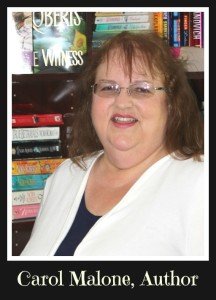 An award winning author, Carol Malone writes new-pulp-fiction suspense kissed with romance that rockets readers into the past to uncover a hard-fought happily-ever-after. If not hammering out new tales, Carol is reading, watching the Dodgers, reruns of Castle, and the Food Network with her sci-fi author husband on the coast of California. She loves to connect with her readers and invites them to chat about romance and sports on her website.
An award winning author, Carol Malone writes new-pulp-fiction suspense kissed with romance that rockets readers into the past to uncover a hard-fought happily-ever-after. If not hammering out new tales, Carol is reading, watching the Dodgers, reruns of Castle, and the Food Network with her sci-fi author husband on the coast of California. She loves to connect with her readers and invites them to chat about romance and sports on her website.
Website: http://carolmalone.net/
Facebook: https://www.facebook.com/carolmaloneauthor
Twitter: https://twitter.com/CarolAnneMalone
Fight Card Romance: Ladies Night

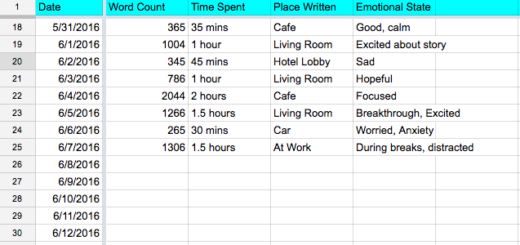
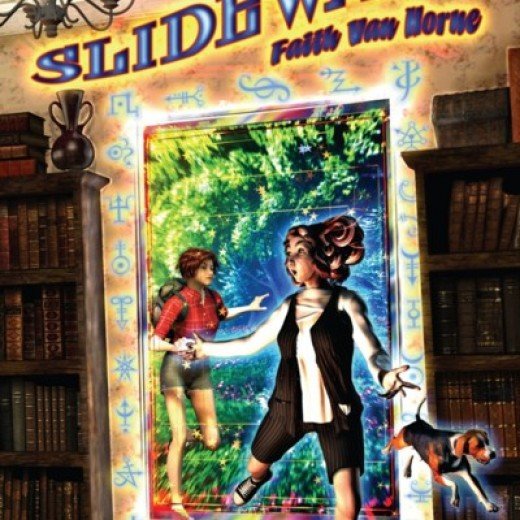
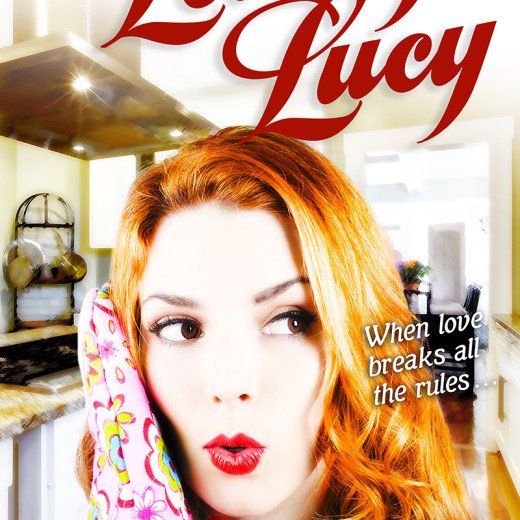



If you want a story to feel real to your readers, then you put reality into it. I know there is a lot of me in my characters, especially my protagonist. Some of it is scary to do. I feel exposed. Some of it is cathartic. All of it is important because why create art if you can’t spill your soul all over it.
Thanks for sharing your stories and your process. I think morning pages will be in my future.
Hi Hugh, when I first started writing, I took a couple of boot camps from a veteran of USC’s creative department. He said stay the h@#$ out of your own stories. I thought, how else are we going to put emotions into our characters if we can inject what we’ve experienced? I don’t listen to him anymore. We have to be able to infuse our writing with strong, deeply personal emotions, and those come from our life stories. I think every creative–no matter what outlet–should read “The Artist’s Way” by Julia Cameron. I’ll be starting her program over again come the first of September just because I missed a lot of weeks during the summer vacation hell. Thanks for your comment, Hugh.
I have that book on my shelf. You’ve inspired me to give it a go.
I am not sure why that guy told you to stay out of your stories. Hemmingway’s best stories were about things he experienced himself.
Like I said, Hugh, I don’t listen to that particular teacher of creative writing any longer. But in my county of Ventura, CA, he’s like a writing god. If we can’t attach our own experiences with emotions our character will be flat and not compelling.